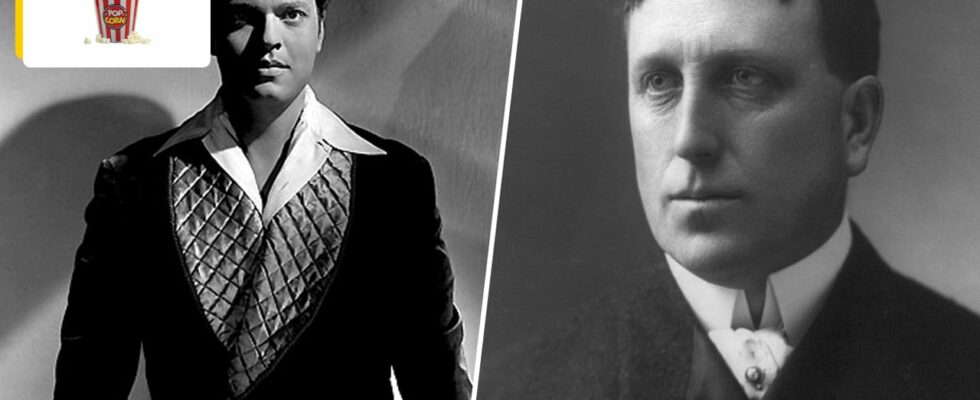All-powerful, untouchable press baron, William Randolph Hearst could not stand the hollow portrait that Orson Welles made of him in his “Citizen Kane”. And, among the grievances, there is a rather naughty reason, even if it is unofficial…
Created by the trio Ryan Murphy, Jaffe Cohen and Michael Zam, Feud is a very interesting anthology series which presents a famous epic confrontation with each new season.
The first season was dedicated to a legendary rivalry between two immense stars: Bette Davis and Joan Crawford, who clashed, literally and figuratively, on the set of Robert Aldrich’s extraordinary film, What’s- what happened to Baby Jane? And even off set.
There are of course other famous Hollywood relationships under very high tension. One, in particular, is even legendary: that between the filmmaker Orson Welles and the press baron William Randolph Hearst.
“You take the photos. I will make war”
When we talk about the powerful bosses of the Press today, none can compare with the sinister William Randolph Hearst. In fact, Hearst was so frightening that even his fiercest adversaries did not dare attack him head-on, for fear of having to suffer the Olympian anger and wrath of a man with almost limitless influence.
The one who talks about it best is undoubtedly Orson Welles, of whom we know that his incarnation of Charles Foster Kane in his Citizen Kane is very largely borrowed from the life of the tycoon.
Many years after the release of his masterpiece, Orson Welles wrote, in May 1975, these words regarding his source of inspiration: “the truth is that Hearst was never rich in the way that Aristotle Onassis was. Onassis’s power lay solely in his money. He could buy an airline, an island or a Greek colonel. But his place in “History is mostly made up of the rumor columns of the tabloid press. Hearst published these rumors; he even practically invented them. The difference is immense.”
RKO
In fact, Hearst’s influence was such that there is even a famous anecdote about it. Photographer Frederick Remington, who worked for him and was assigned to cover the Spanish-American War in Cuba in 1898, complained to Hearst in a telegram, telling him that there was not enough combat to photograph. to keep him busy. To which Hearst replied: “You take the photos. I will go to war.”
Hearst’s rage against Citizen Kane
It is an understatement to say that Hearst did not really like the story of Welles’ film, even if the mogul refused to see it. He banned his publications from even briefly discussing the film. He even tried to buy the original copy of the film to burn it, threatened theater operators who would show the film, and even lobbied intensely with the Academy of Oscars to prevent Welles’ film from winning the Oscar. Best film, for How Green Was My Valley.
Among other reasons for Hearst’s rage towards Welles’ film is the film’s female character, the young Susan Alexander Kane, an opera singer who had fallen into alcoholism played by Dorothy Comingore.

RKO
Many people have associated this character with Hearst’s muse, the actress Marion Davies, even if, later, Orson Welles denied having been inspired by the actress to create this character.
Welles also said that Hearst hired a prostitute and a photographer to entrap him and compromise him enough with a possible scandal to ruin his career. But Welles was tipped off by a police officer before the trap was set.
Rosebud
Finally, there is another argument explaining Hearst’s hatred towards Orson Welles and the film’s other screenwriter, Herman J. Mankiewicz. But it is a completely unofficial argument, based on rumors circulating in dinners and well-watered Hollywood parties where good words – like bad ones – are thrown out into the open.
Rosebud, the enigmatic and famous name that Charles Foster Kane pronounced even on his deathbed and which designates the sled that rocked the tycoon’s childhood, was in fact the nickname that Randolph Hearst had given… to Marion’s penis Davies; or “rosebud”…
A juicy anecdote which would of course have reached the ears of Orson Welles and his screenwriter friend. And when we know that the film ends with this famous name on Welles’ lips while the sled burns…
